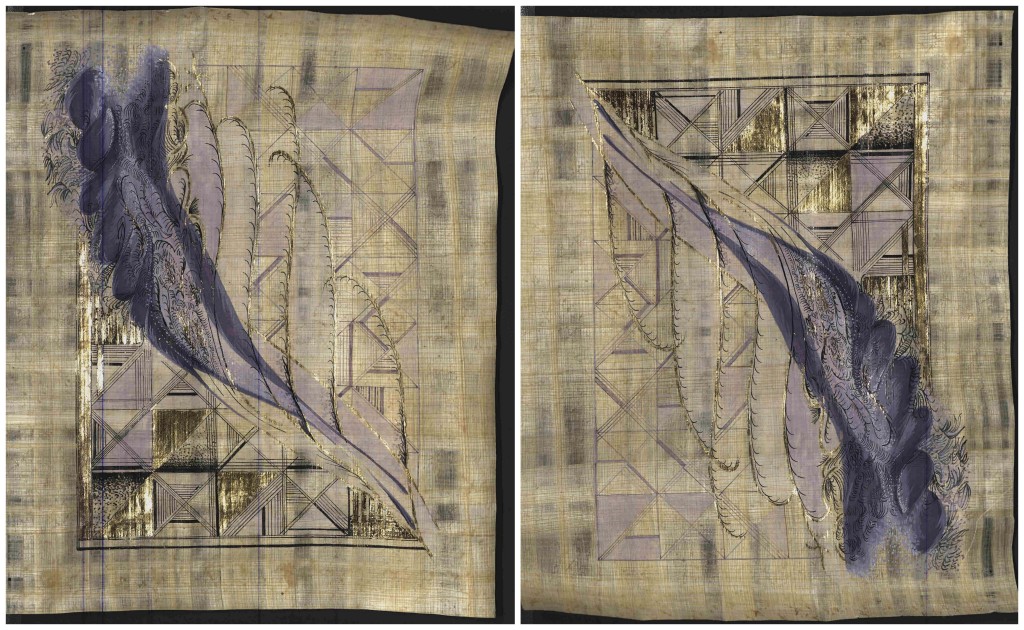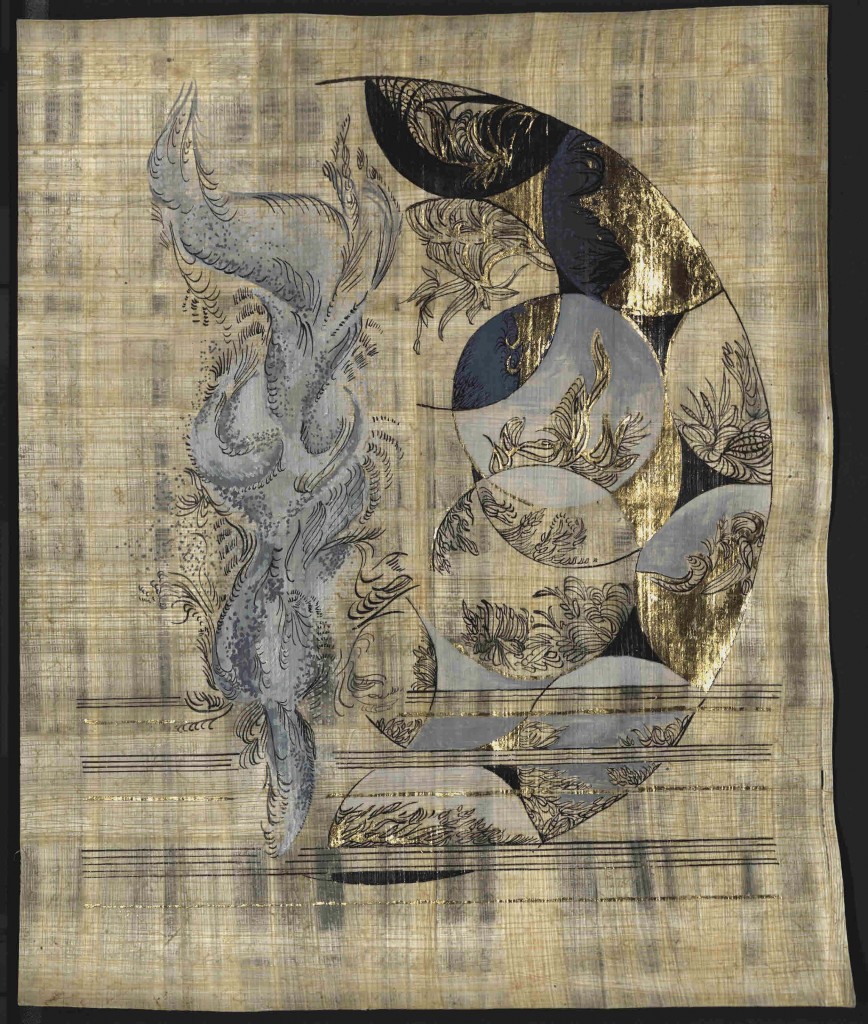The latest display in the Smith Rare Book Room is “The Art of Illumination: Past and Present,” which will be on view from today (January 15) through February 14. The display focuses on illuminations throughout time, illustrated by examples from the library’s special collections and two new pieces by Clara Nguyen, the Collections Assistant for Government Information here at E.H. Little Library. Clara previously served as the Interim Assistant Curator of the Van Every/ Smith Galleries, and holds a B.A. in Art History (with a studio concentration) from East Carolina University and a M.A. in Art History from the George Washington University.
Clara first became interested in illuminations through an internship at the Ellen Frank Illumination Arts Foundation (EFIAF), where she worked on the Book of Judith. Formed in 2004, EFIAF aims to “revitalize passion for and public awareness of the art of illumination, in part through education and training at the unique Illumination Atelier.” Similarly, when I interviewed Clara last week, she emphasized both the ancient and modern aspects of illumination: “I try to use natural materials because I’m trying to keep in the tradition of illumination.” She uses many of the same materials as the older works on display, such as: papyrus (typically used for practice pieces), vellum (reserved exclusively for final pieces), 23 K leaf, egg tempera, Indian ink, fish glue, bole (Armenian red clay and water), rabbit glue, and garlic glue. Don’t expect Clara’s work to look like a medieval manuscript, though – she says that she “likes taking physical images and then making them abstract;” much of her work is inspired by nature, including one of her pieces in the Rare Book Room display, which is based on an outing on the Davidson cross country trail.

Two views of “The Vines”
“Amongst the birds
they writhe
breathing with the clouds
but on the ground
they lie –
forgotten”
Part of what drew Clara to illuminations was how the materials used force the artistic process: “It’s a fickle medium. You can mold it to where you want it to go… to a degree.” When asked about the creative process, she cited an example her mentor, Dr. Anne Collins Goodyear, gave when describing how ideas are developed: “A man (or woman) is walking and thinking. He waits at the bus stop for his bus to come along, still contemplating but not fully focused on his thoughts. The bus arrives and it is when he takes his first step onto the bus that the ‘idea/inspiration’ strikes him. It is in this in-between state of things that all the pieces finally click and solidify. I feel that my initial creative process occurs in this way. In other words, my mind is quietly thinking with all these ideas and one final element usually ties it all together. In my pieces, the tying element is usually based in nature and occasionally, a man-made element.” One idea formed in such a way inspired a piece in our display: “I was driving one day and saw a smokestack and thought, “Huh… I want that in there, I just don’t know how I want it yet.”
After the seed for the idea has been planted, Clara can then turn to implementing and shaping it: “Once I have an idea, I make a few sketches to lay out the general shapes. I transfer these shapes onto the papyrus/vellum using a very light pencil. Thereafter follows the fun part of the process: I begin an additive process of painting, drawing with quill and Indian ink, and leafing. Like most contemporary illuminators, I work using a 5-diopter glass lens which increases the viewed object size to 225%.”
For those interested in seeing Clara’s process in person, she will be giving an informal live demonstration of illumination techniques on January 28th, from 11:00 AM to 12:00 PM, in the Library’s Davidsoniana Room (second floor of E.H. Little Library). Feel free to stay for the hour, or stop by for a few minutes. Light refreshments will be served, and questions and comments are welcomed! As Clara said during our interview, “It’s a lot of fun seeing the connections people make and what they see.”


Speak Your Mind